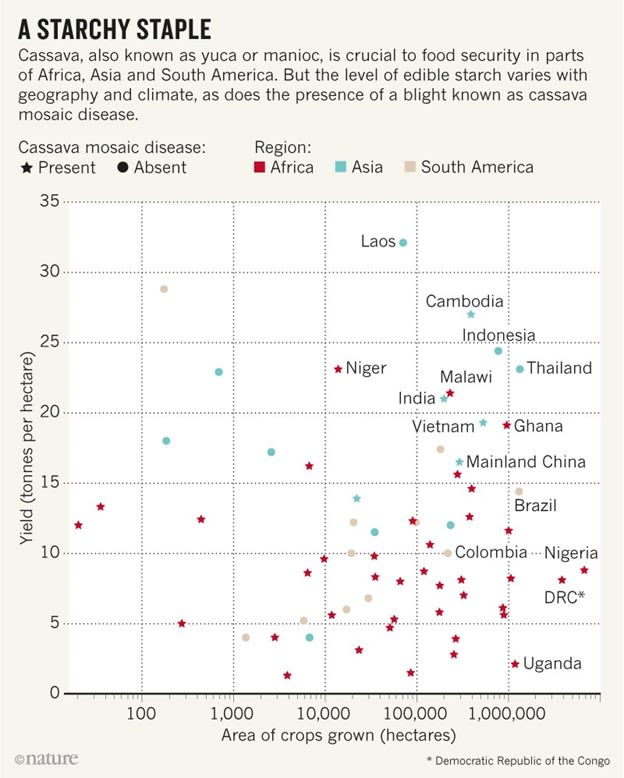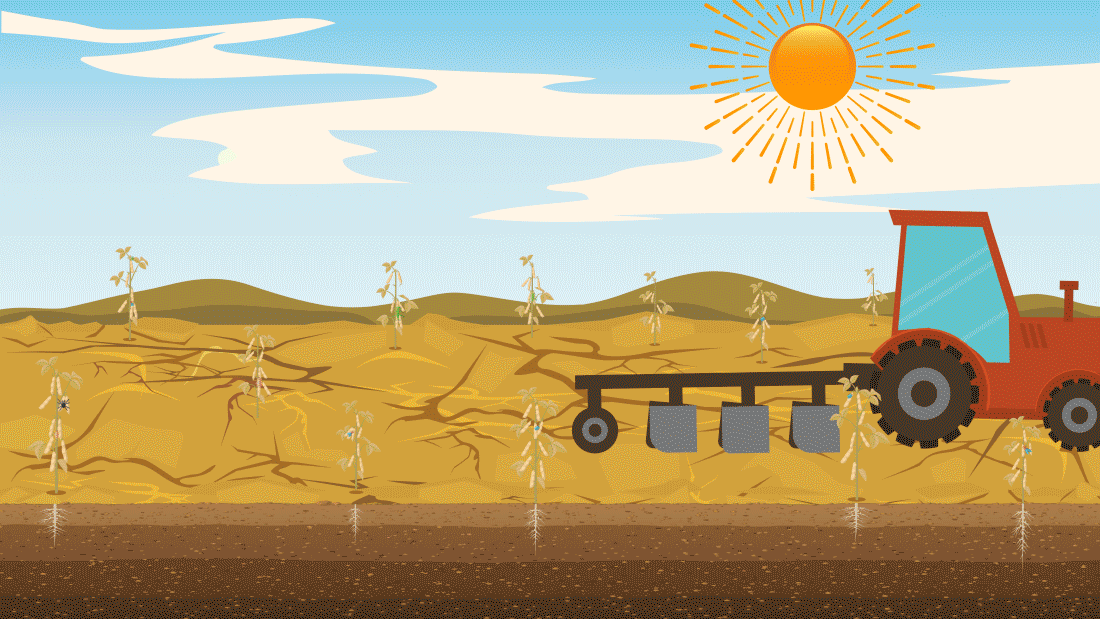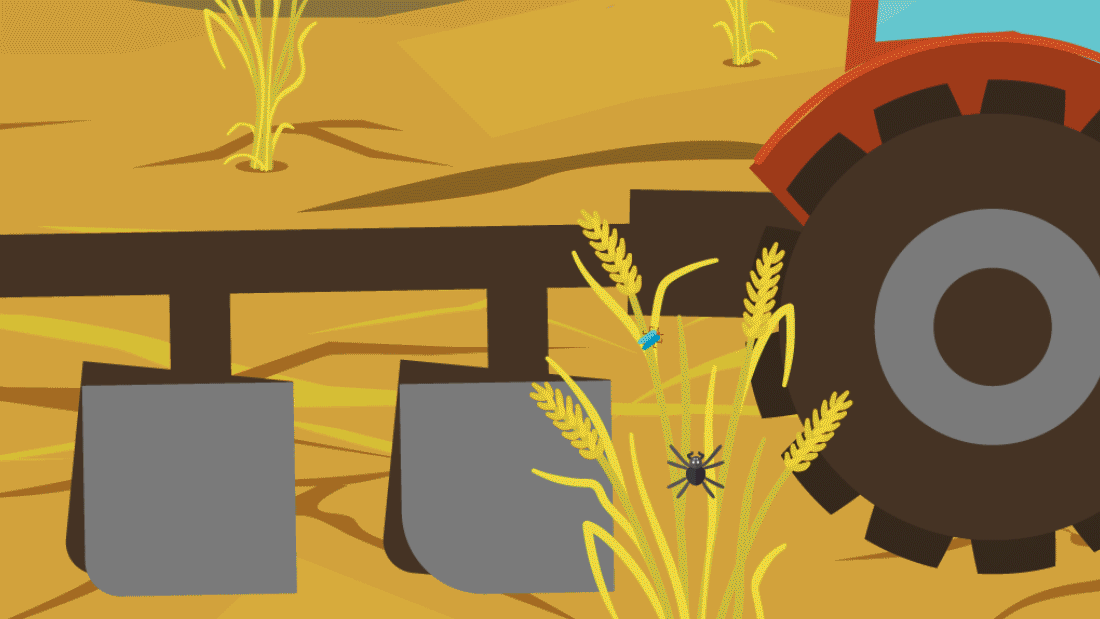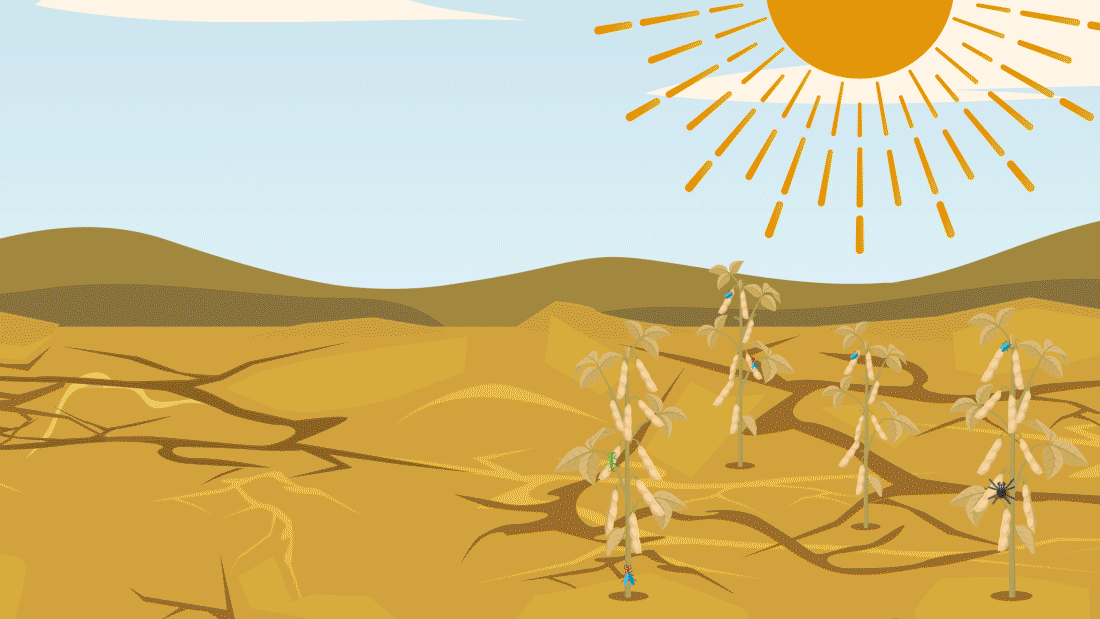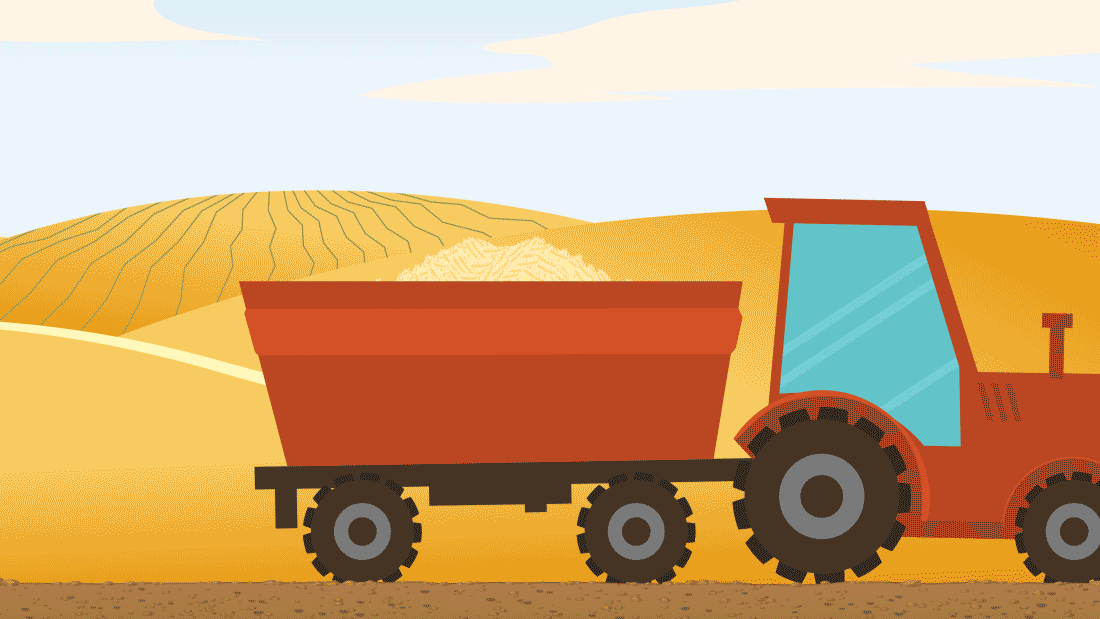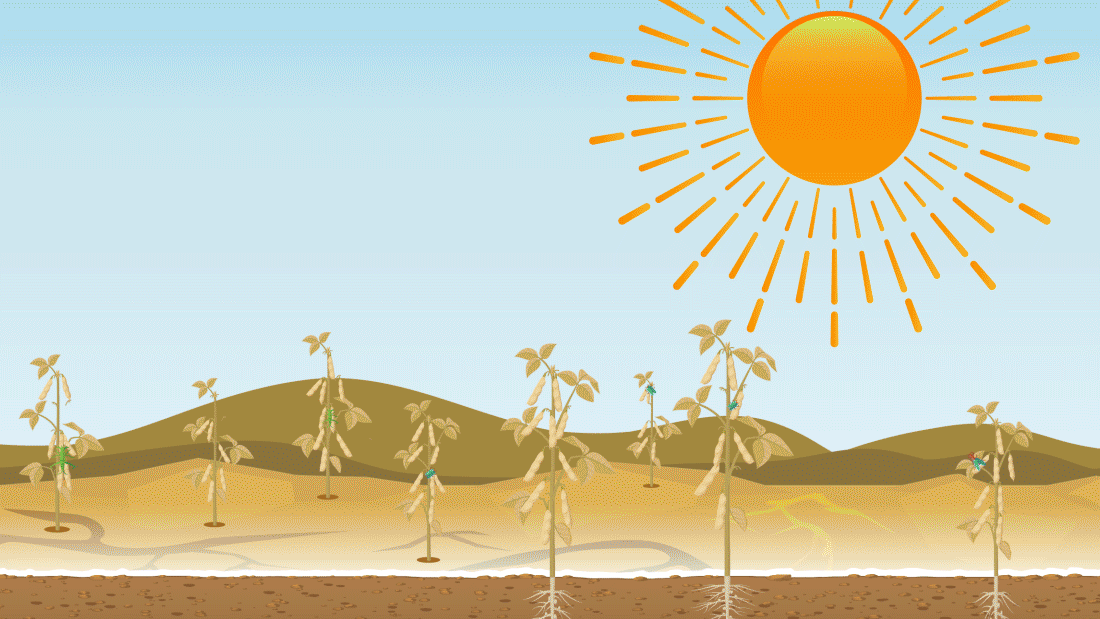Stay rooted in the latest agriculture news updates!
Australia I BangladeshI China I India I Indonesia I Japan I Korea I Malaysia I Philippines I Pakistan I Taiwan I Thailand I Vietnam I Plant Science I Global
Global News
EU drops pesticide reduction plan amid political opposition
The European Commission has abandoned its plan to halve pesticide use by 2030, shifting focus to trade and innovation instead of mandatory cuts. Read more…
European governments heading towards GMO deregulation
The EU has moved a step closer to lifting the stringent regulation of a new generation of genetically modified crops created using new genomic techniques (NGT), Read more…
UK rules out trade deals which undercut food standards
Britain will not sign trade deals with potential suppliers such as the U.S. that open the way for food imports that are produced in a way that would be illegal for the country’s farmers, environment and farming minister. Read more…
Gates Agricultural Innovations and Corteva forge new collaboration to drive Ag Innovation
Gates Ag One and Corteva, Inc, a global agriculture technology company, announced a new collaboration to accelerate agricultural innovations in support of global food security. Read more…
Country News
Australian agriculture – competitive, resilient and up for the challenge
Agriculture, fisheries and forestry is well placed to take on future challenges and opportunities, according to the latest ABARES Snapshot of Australian agriculture. Read more…
Massive invasion spreads across Australia and what you need to know
They advised residents to inspect ‘bare, compact soil’ and ‘hard, well-drained ground along contour banks or open areas’ for locust eggs. Read more…
Australia – Early alert system for crop disease infection
In an Australian first, grain growers now have access to accurate, localised data to improve disease management through a project harnessing technology to track airborne disease spore movement. Read more…
‘Poultry have been infected’: Bird flu confirmed at Victorian chicken farm
Bird flu has been detected at a chicken farm in northern Victoria, leading biosecurity officers to put the farm into lockdown. Read more…
Lack of policy likely to affect export of farm products
Lack of a pesticide policy in Bangladesh prompts incessant use of chemical pesticides, offering a challenge to achieve the country’s ambitious goal of earning $5.0 billion in agricultural exports by 2030. Read more…
Bangladesh set to surpass China in cotton imports, USDA reports
The United States Department of Agriculture (USDA) has announced that Bangladesh is poised to overtake China as the world’s leading cotton importer during the 2024-25 trading year, which runs from August to July. Read more…
China’s bold new agricultural plan puts AI, biotech and seeds behind self-sufficiency push
China’s Ministry of Agriculture and Rural Affairs has outlined 10 critically important areas to prioritise while keeping a close eye on advancements in the world’s technological frontiers… Read more..
Syngenta Group to open major R&D facility in Shanghai
Switzerland-headquartered crop protection and seeds provider Syngenta Group on Monday announced it will open a crop protection innovation center in Shanghai. Read more…
China to expand plantation of ratoon rice by over 666,000 hectares
China plans to expand its ratoon rice cultivation area by approximately 10 million mu (about 666,666 hectares) by 2030. Read more…
China pushes for high-level self-reliance in agricultural tech
China’s Ministry of Agriculture and Rural Affairs issued a notice on Friday outlining key sectors for agricultural technology innovation from 2024 to 2028, with the goal of accelerating progress toward high-level self-reliance in agricultural technology. Read more…
India
India a trusted friend, looking to elevate strategic ties: EU President
Modi and von der Leyen are to meet Friday. Her visit to India is taking place at a time when the trans-Atlantic partnership between Europe and the US is navigating uncertainty. Read more…
Satya Nadella Shares Video Of AI-Powered Farming In India, Elon Musk Reacts
In a post on X, Mr Nadella shared the story of small-town sugarcane farmers who have historically faced significant challenges. Read more…
Punjab faces cotton diversification challenge ahead of sowing season
Punjab agriculture director Jaswant Singh said efforts are being made to encourage farmers to return to cotton cultivation, with the government standing in support. Read more…
5-Day HRD Programme on Integrated Pest Management takes off at Kisan Kendra
The HRD programme has been designed to enhance participants’ understanding of the safe and judicious use of pesticides, promote the use of CIB&RC- approved pesticides, and highlight the role of botanicals in agriculture for achieving sustainable agricultural practices. Read more…
Join The Potential Of GMO Plants As Agricultural Innovation And Sustainable Lifestyle
Indonesia is entering a new era in the agricultural world, where genetic engineering technology or GMO (Generally Modified Organization) is the main focus to overcome the challenges of food security and climate change. Read more…
CropLife Indonesia Promotes Sustainable Pesticide Management
Head of the Pesticide Supervision Substance Group of the Pesticide Directorate of the Ministry of Agriculture, Budi Hanafi, emphasized that synergy between stakeholders is key to maintaining agricultural productivity without sacrificing health and environmental sustainability. Read more…
This conference opened with a key speech from President Prabowo Subianto who emphasized the important role of innovation in realizing food sovereignty and Indonesia’s economic growth. Read more…
Indonesia’s Palm Oil at Risk as Rising Temperatures Kill Pollinating Beetles
A recent study presented at the International Conference on Oil Palm & Environment (ICOPE) 2025 in Bali reveals the impact of rising temperatures on these crucial insects. Read more…
Japan’s farm exports up 3.7% to 1.5 tril. yen in 2024, new record
The value of Japan’s agricultural, fisheries and forestry product exports rose 3.7 percent in 2024 from a year earlier to 1.5 trillion yen ($9.6 billion), setting a new record. Read more…
Amid climate change, LED-lit ‘plant factories’ enter spotlight
A roughly 60-square-meter hydroponic farm was installed on the 11th floor when the Itoya building was rebuilt in 2015. Read more…
Dabeeo, Sooin partner to expand smart agriculture in Southeast Asia
South Korean geospatial artificial intelligence firm Dabeeo said Friday it has signed a memorandum of understanding with controlled-release fertilizer specialist Sooin… Read more…
Korea’s National Bio Commission plans regulatory reforms for stem cells, gene editing
Korea’s bio sector awaits significant regulatory enhancements amid global competition. Read more…
South Korea eases farmland regulations to boost agricultural investments
New measures aim to stimulate rural investment and simplify land regulations in South Korea. Read more…
‘Stakeholders consulted on Crop Seed Quality Bill amendment’
The Ministry of Agriculture and Food Security (KPKM) remains committed to ensuring national food security while safeguarding the environment and public health… Read more…
KPKM approves RM9.25 million allocation to empower Johor’s food security agenda
The Ministry of Agriculture and Food Security (KPKM) has approved an allocation of RM9.25 million (Phase 1) to empower the food security agenda. Read more…
Anwar urges swift action on five-season padi cultivation project in Kedah
Prime Minister Datuk Seri Anwar Ibrahim wants the implementation of infrastructure to support the ‘five-seasons in two years’ padi cultivation programme… Read more…
President Asif Ali Zardari desired that Pakistan, due to its closer geographical proximity with China, would like to take advantage from the Chinese advancements in different fields including agriculture, communication space, technology and industry. Read more…
Pak-Vietnam Ties To Be Strengthened: Envoy
Ambassador of Vietnam H.E Pham Anh Tuan on Tuesday said that Pak-Vietnam ties would be strengthened further in agriculture by taking benefit from each other’s experience. Read more…
SUPARCO, BKK join forces to revolutionize agriculture with space technology
Pakistan Space and Upper Atmosphere Research Commission (SUPARCO) and Bakhabar Kissan (BKK), with M/S JAZZ as its communication partner have signed an agreement to empower farmers with smart agricultural solutions using space technology. Read more…
Philippines
Philippine ministerial delegation tours Middle East for trade, agriculture deals
In an effort to strengthen the Philippines’ trade presence in the Middle East, a government-led business mission is touring Saudi Arabia, Jordan, Qatar and the UAE to explore new market opportunities for the country’s agricultural and non-food products. Read more…
ISAAA Inc., in collaboration with the Philippine Agriculture and Fisheries Biotechnology Program of the Department of Agriculture (DA Biotech Program), will hold the webinar titled Global and Local Perspectives on the Regulatory Frameworks for New Breeding Techniques in Crops on March 6, 2025, via Zoom. The registration is now open to all interested participants. Read more…
Philippine partners plan to use videos to help indigenous farming communities and foster peace
Participants attending a training programme held recently in Mindanao, Philippines, announced their plans to show local language farmer training videos on agroecological practices to the indigenous communities they work with… Read more…
Taiwan deepens agricultural cooperation with Australia
Representatives of the Ministry of Agriculture attended the Australia-Taiwan 19th Agricultural Working Group Meeting Feb. 19 in Brisbane, underscoring the government’s commitment to forging strong partnerships through agriculture. Read more…
President William Lai (賴清德) met with a visiting delegation led by Thulisile Dladla, deputy prime minister of Eswatini in Southern Africa, and expressed hope for increased collaborations between the two countries. Read more…
Taiwan extends mandatory inspection on Vietnamese durian imports
Taiwan will continue inspecting every shipment of fresh durian from Việt Nam until April 30 to ensure food safety compliance. Read more…
Smart drive to boost rice farming
Thailand is looking to strengthen its rice farming sector by introducing a climate-smart initiative for growers nationwide. Read more…Thailand unveils AI-, IoT-based smart agriculture platform
Thailand has launched a new smart farming platform named “HandySense B-Farm” which harnesses the power of smart sensors, artificial intelligence (AI) and Internet of Things (IoT) to help farmers control and manage their farms efficiently. Read more…
Thai durians remain China’s top choice amid safety upgrades
The Ministry of Agriculture and Cooperatives has expressed confidence that Thai durians will continue to be the preferred choice in China, following enhancements to food safety and contamination screenings. Read more…
Vietnam: A ‘hot spot’ for international cooperation in agricultural sciences
During the workshop, SPIA representatives presented their assessment of CGIAR research outreach among farmers. Read more…
Sri Lanka wants Vietnam to support urea fertilizer for the main rice crop
Minister Lalkantha affirmed that there are no obstacles to expanding agricultural cooperation between Vietnam and Sri Lanka. Read more…
Vietnam must tighten food safety controls after 130 EU export warnings
The EU has tightened food safety checks on Vietnam’s exports, issuing 130 warnings in 2024 over pesticide residues and microbial contamination. Read more…
The Canadian province stands ready to exchange agricultural research with Vietnam
(VAN) Minister Warren Kaeding is willing to collaborate with Vietnam on the application of science and technology in agriculture to enhance production efficiency and protect the environment. Read more…
Antioxidants in fruits and flowers seem to counteract harmful effects of microplastics, study shows
Australian-led research discovers weapon used by fungi to destroy food crops
China’s new rapeseed variety increases yield, enhances food security
Chinese scientists develop rice strain to support heart health
Scientists Have Identified Genetic Defense Against Soybean Cyst Nematodes
This tiny plant could revolutionize agriculture and combat climate change
How peaches get their color: scientists discover key regulatory genes
Researchers Identify Genes that Help Sorghum Resist Striga by Preventing its Germination
Credits to the owners of the news embedded on this post.



